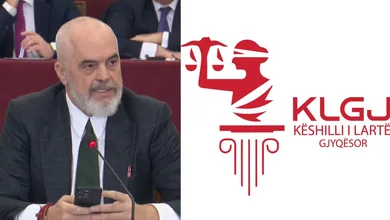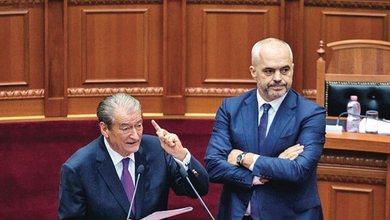
The reservations about the new penal code have occupied an important place in the public debate in recent days, but they were mainly focused on the articles on defamation, media freedom or prostitution – topics of high sensitivity for the public. Arben Rakipi, presenting the draft, focused more on these points, while the key issue, corruption, was passed over in passing. That is where the biggest problem lies: the changes that weaken the article on abuse of office, one of the most important instruments for punishing state abuses.
According to the analysis of specialists, the draft code aims to exempt the prime minister, ministers and heads of state agencies from responsibility, shifting the burden only to second-rate officials. If approved, even those who are currently convicted of this offense are expected to be amnestied. Meanwhile, the change in the punishment limits is clear: from 7 years in prison in the current Code, to 4 years in the draft, bringing a significant easing of sanctions.
This change, instead of strengthening anti-corruption mechanisms, as happens in other countries with similar problems, weakens them. Moreover, the principle of the “most favorable criminal law” guarantees that existing sentences will be reviewed, creating a domino effect in the judicial system. This would lead to the mitigation or annulment of many decisions, being perceived as a disguised amnesty for state abusers.
Narrowing the scope of the offense is another important element. Instead of including all state officials, as is the case with the current Article 248, the draft code limits liability only to those who directly administer public funds. Thus, the top brass of the administration – the prime minister, ministers, deputies – remain outside the scope of the law, while specialists in procurement commissions remain exposed.
The manner of committing the crime has also been narrowed. From a simple provision on violation of the law, evidence of criminal intent, economic damage or abuse of authority is now required. These elements make investigation and proof much more difficult, weakening SPAK and prosecutors in their efforts.
Although new provisions such as "conflict of interest", "discrimination of citizens", "embezzlement of property during duty" or "acceptance of gifts" have been added to the draft, they do not cover the gap left by the practical repeal of Article 248. In fact, this provision has been a key tool of Albanian justice for years to crack down on abuses, especially when evidence of genuine corruption was lacking.
Finally, although an article titled “abuse of office” is formally maintained, it has essentially been emptied of content. From a broad, flexible and preventive instrument, it has been transformed into a limited provision, which excludes the highest state officials and makes investigation difficult. The consequence is clear: weakening of the architecture of the rule of law, loss of public trust and creation of the perception that the penal reform has been used to amnesty politicians.



















